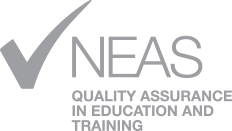Session 2 – Professional Development and Teacher Empowerment
Room B
Cultivating Continuous Improvement in ELICOS
Download the Presentation (PDF)
Summary
In an environment of rapid growth and constant evolution, the responsiveness of educational institutions in the Australian ELT sector may be challenged. This presentation explores the transformative journey of an ELICOS school in Sydney, as it strategically nurtures a culture of continuous improvement. Our approach to cultivating ongoing enhancement and innovation includes collaborative professional learning, reworked means of communication, and the implementation of data-driven decision-making.
The integration of innovations such as adapted NPS benchmarking for teacher feedback, in combination with qualitative and quantitative instruction metrics and efficient student feedback instruments have contributed to the school’s responsiveness to students’ needs and expectations. As a result, the decisions made have been student-led, prioritising the sentiments of our school community, and elevating educational practices that enhance the learning experience at La Lingua.
Presenter: Diego Torres
Bio
Diego Torres is a language education specialist with experience in TESOL, team management, and eLearning. He currently serves as the Director of Studies at La Lingua Language School in Sydney.
Diego is passionate about providing personalised and meaningful learning experiences for ESL students. With a focus on individual needs and interests, he designs engaging and interactive course materials that foster a love of learning and drive student success. Whether it is through the use of cutting-edge technology or proven ESL teaching methods, Diego strives to create an environment that encourages critical thinking, collaboration and creativity. He is dedicated to helping his students achieve their full potential and reach their educational goals.
